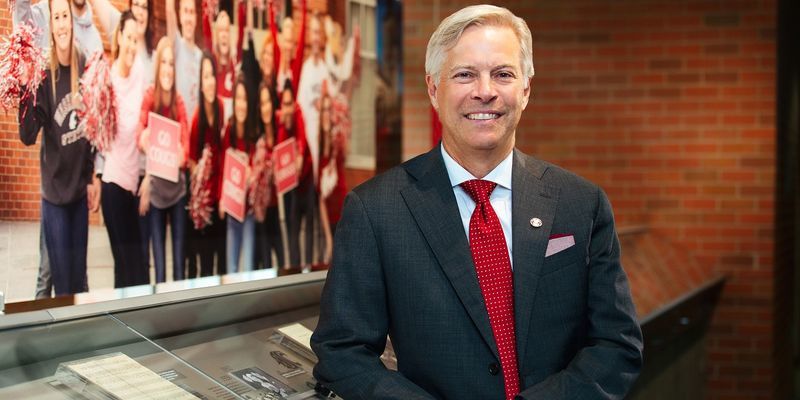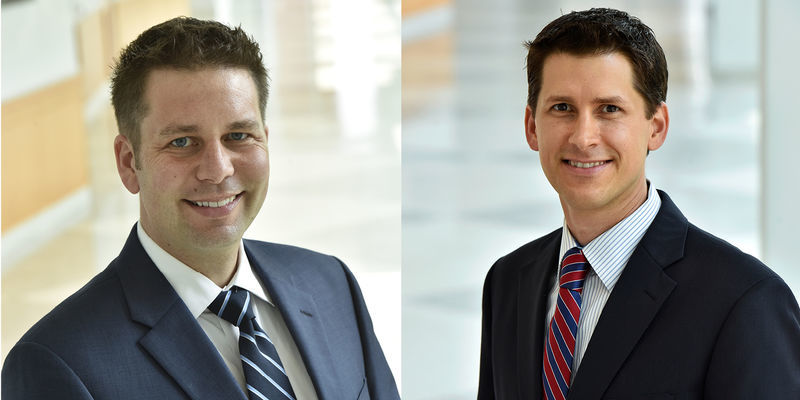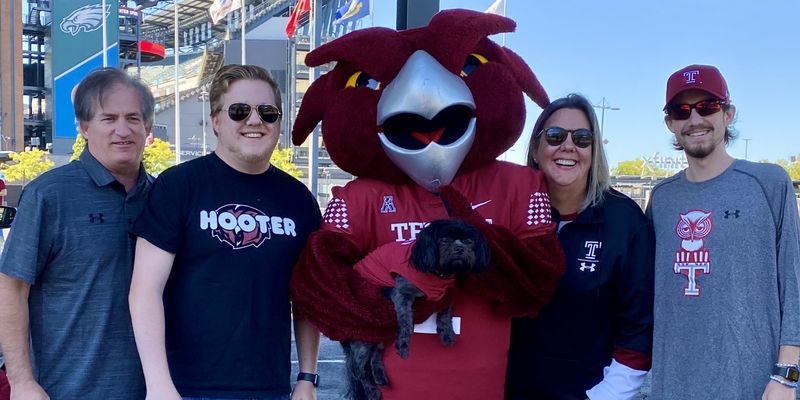STAR students light the path for reentry
Students from Temple’s Fox School of Business give back to community and build a career along the way.

In our darkest moments, we all hope for a second chance. For the last decade, the Eastern District of Pennsylvania Reentry Court, also known as the Supervision to Aid Reentry (STAR) program, has been helping formerly incarcerated people make the most of their second chances.
Launched in 2007, the program brings together criminal justice and community partners to support returning citizens. In 2017, the team started noticing an increasing number of requests relating to personal finance—things like building a credit score, opening a bank account and taking out car loans—but found that they did not have dedicated members on the team with this expertise. They did, however, know exactly who to call.
The STAR program contacted Jeffrey Boles, associate professor and chair of the Department of Risk, Actuarial Science and Legal Studies at the Fox School, to provide personal finance support for their program.
“The Fox School is such a hotbed of talent,” said Boles. “Our students, regardless of their major, were well-suited to help. So, we put together a team to attend reentry court sessions to work with participants in connection with their financial literacy, needs and goals. That is what we have been doing since the fall of 2017.”
With members from U.S. Probation, U.S. District Court, Federal Defenders Office, U.S. Attorney’s Office and the Fox School, the STAR team provides intensive supervision and resources to individuals returning home from federal prison, assisting with education, training, employment and other needs.
The role of the Fox School team is to help participants develop skills in budgeting, credit building, saving and banking. Fox undergraduate students across majors provide individual counseling and deliver court presentations on topics that help participants improve their financial management abilities.
Opportunities for a second chance
“Participants and graduates of the program say that it’s transformational,” said Cyndi Zuidema, reentry coordinator at the U.S. Attorney’s Office. Zuidema, along with her colleague, reentry specialist Mia Lamb, works closely with the Fox team. “Participants have never experienced the inside of a courtroom in this type of way—where people are helping them. Having a judge say to them, ‘What can I do for you?’ We tell participants that we’re walking together with them on their journey throughout the reentry process.”
One aspect of that journey is the presentations and coaching sessions between Fox undergraduates and participants. Students who want to be involved apply and undergo an interview process with Boles. Once accepted, students attend bimonthly court sessions and pre-session team meetings.
During a typical session, students provide a brief overview presentation to all STAR participants. After the presentation, students provide follow-up mentoring on specific topics for individuals or small groups during the court session. STAR program participants either request Fox assistance on a particular issue or are referred to Fox students by the STAR team to address specific inquiries.
About the long-term impact of the program for participants, Lamb and Zuidema echo a similar sentiment: Once in the program, always in the program. They speak to participants at any point in their journey and provide them with support, from legal assistance to continued financial literacy lessons.
According to the 2021 Annual Report for the Reentry Court program, only 9.4% of the 296 STAR graduates at that time had been arrested or reincarcerated. That rate is significantly below the district’s revocation rate for similarly situated individuals not enrolled in the program. STAR’s arrest/revocation rate has remained consistent throughout the program’s existence.
By reducing revocations and imprisonment, the program saves taxpayers significant money based on the $38,000 estimated annual cost of imprisonment per inmate. It also reduces the negative collateral consequences of reincarceration on families and the larger community.
“The support doesn’t end, even when participants complete their supervised release,” Zuidema said of the STAR program. “A lot of our graduates also ask for help for their family members. I think what we are doing very much extends beyond the individual and impacts their families and communities.”
According to Jonathan Edelman, FOX ’14, and current doctoral student in the Beasley School of Law, working in the program is one of, if not the most inspiring and invigorating experiences of his life. He serves as the financial literacy program coordinator for the Fox School in the STAR program.
“There are a lot of people who went to jail at the age of 17, 18 or 19 and have been away for decades at a time,” said Edelman. “They were effectively children at that time. Now they are coming out and figuring out how to build an adult life from scratch.”
Along with the other benefits of the program, they give out framed certificates of completion, and when one gentleman received his, he broke down crying. He mentioned that he had turned 50 the prior week, and that this was the longest he had been out of prison since he was 17 years old. Now he has a job and his own apartment. “I think, to a lot of folks in the program, this type of life is not something they had ever conceived of being able to do—especially with how difficult reintegrating back into society is,” he said.
Everyone has a seat at the table
“It’s great,” Lamb said about working with Fox students. “Thank God for them because some of the questions participants ask me, I don’t have the answers to. So, I refer them over to the students and get them the help they need.”
Maggie Callahan, Class of 2023 financial planning major and current member of the Reentry Court team, realized how many members of the community did not have access to the knowledge she was gaining at the Fox School. Working in the STAR program has expanded her mind beyond the borders of Temple’s campus.
“It is nice to feel like you’re helping someone,” said Callahan. “It is also great in building skills like presenting. You give presentations to the courtroom and mentor someone one-on-one, which builds a lot of soft skills, like how to convey a message and break things down into simpler terms that people can understand.”
This work is not without its learning curves, however. Callahan notes the importance of shadowing and learning from more experienced professionals like Professor Boles, Edelman and other graduate mentors. Callahan also emphasizes the importance of telling participants when a topic is not her area of expertise. When this happens, she puts them in touch with the team’s extensive network of experts so they can always get the answers they need.
According to Boles, the experience is a masterclass in problem-solving and leadership for students. Students see behind the scenes of the court system, including how judges and other government officials run a team and work to provide as much success and assistance as possible for the participants.
“It’s also wonderful for our Fox students because any student who’s interested in pursuing a consulting career gets this early access to consulting work where they can meet one-on-one with a court participant during court sessions. They identify issues that the participant needs in connection with their finances and work toward meaningful solutions,” said Boles. “So, there’s issue spotting. There’s brainstorming. There’s collaboration.
“It is such a professional joy to see our Fox students sitting alongside these high-ranking federal officials, all working together where everyone has a seat at the table to help support these court participants.”
A common refrain among Boles, reentry coordinators Zuidema and Lamb, and students like Edelman and Callahan is that they are excited to see the potential expansion of reentry courts across the country.
“When asking graduates for their input on how we can improve the program, the one suggestion we get is that they wish we could help more people,” said Zuidema. “Participants and graduates say that this should be open to more people, and this should be the standard for how things are in the criminal justice system.”
“We need more reentry courts—they are terrific,” said Edelman. “We have had visitors from various circuits around the country who come and sit in from places like the Eastern District of New York who are looking to start a reentry court.
“Being able to watch and support this process is an incredible experience.”
This article originally appeared in the 2023 Moments Issue of Fox Focus.
-- Anna Batt


